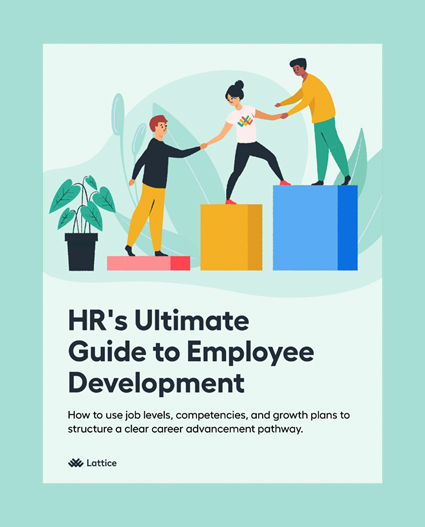
In people-first cultures, the notion that employee development matters is a given. But investing in employee growth isn’t just the “right” thing to do — it also makes business sense.
LinkedIn’s 2018 Workplace Learning Report found that external hires tend to score 61% lower on their performance reviews compared to individuals who are promoted from within, and 90% of employees say they would stay longer at a company that invests in their growth.
Without a formalized process in place, however, individual career development can feel ambiguous. Fortunately, there are tools you can use to give employees the structure and clarity they need.
Download this guide to learn how to use job levels, competencies, and individual development plans to take your employees’ growth from a platitude to a reality.
Partner

What’s a Rich Text element?
The rich text element allows you to create and format headings, paragraphs, blockquotes, images, and video all in one place instead of having to add and format them individually. Just double-click and easily create content.
Static and dynamic content editing
A rich text element can be used with static or dynamic content. For static content, just drop it into any page and begin editing. For dynamic content, add a rich text field to any collection and then connect a rich text element to that field in the settings panel. Voila!
How to customize formatting for each rich text
Headings, paragraphs, blockquotes, figures, images, and figure captions can all be styled after a class is added to the rich text element using the "When inside of" nested selector system.


